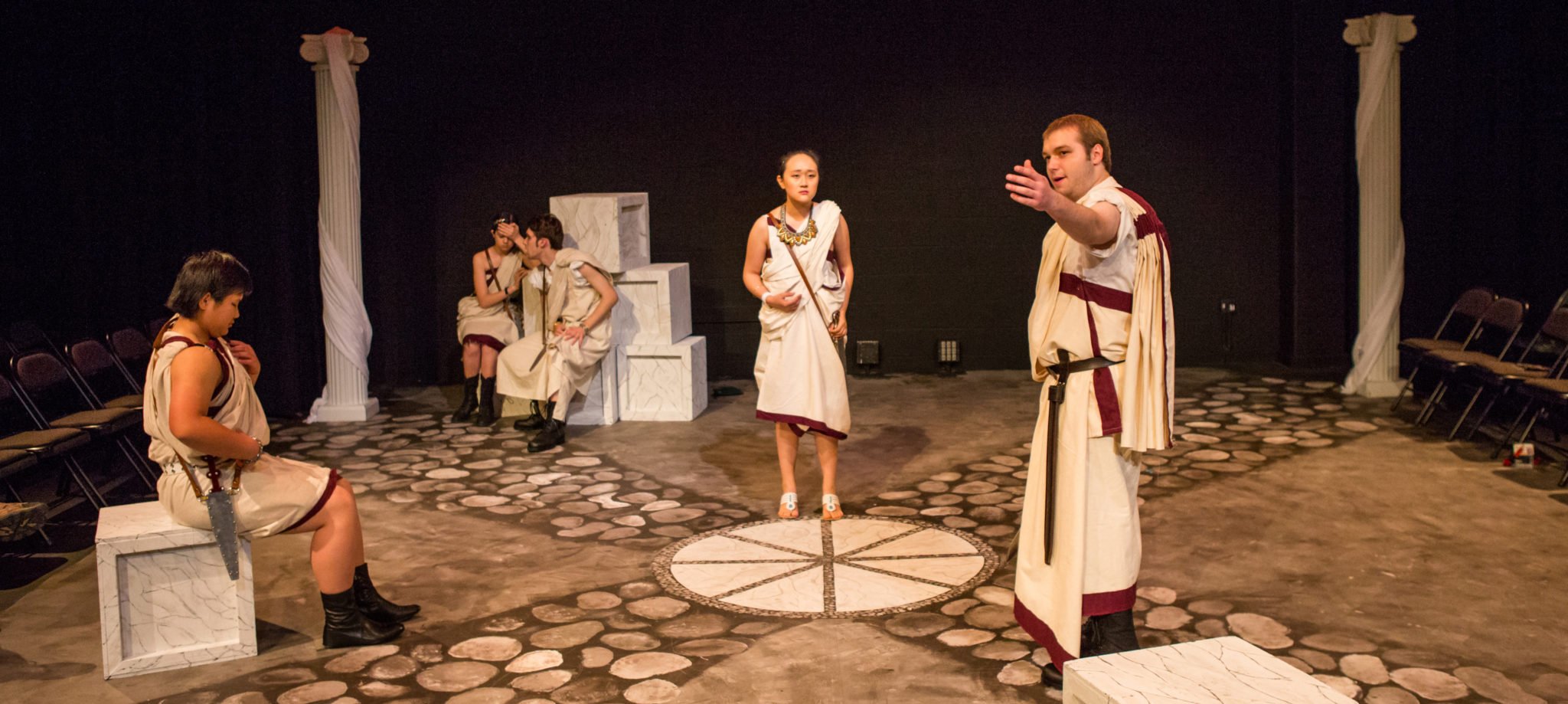Posted

Spring 2016 Production
Julius Caesar by William Shakespeare, believed to have been written in 1599, is based on true events from Roman history. Although the title is Julius Caesar, Julius Caesar is not the most visible character in its action; he appears alive in only three scenes. Marcus Brutus speaks more than four times as many lines, and the central psychological drama is Brutus’ struggle between the conflicting demands of honor, patriotism and friendship.
BOX OFFICE INFORMATION
Tickets are $5 for students, $7 for senior citizens (Thursday only) and $8 for adults, and may be reserved by calling the box office at 299-0436, ext. 340, or emailing the box office at boxoffice@lancastermennonite.org. During the week of the play, the box office in the Fine Arts Center lobby will be open each day from 11:30 a.m.-3:30 p.m. to purchase tickets in person. SEATING IS LIMITED.
SYNOPSIS
Julius Caesar triumphantly returns from war. During the celebrations, Caesar is stopped by a soothsayer who warns that he should, “Beware the Ides (15th) of March.” Cassius, a fellow senator and a successful general himself, is jealous of Caesar’s newfound glory. Cassius, Casca, and their allies convince Brutus that Caesar is ambitious and will seek to become Emperor. They persuade him of their views and plan Caesar’s death. Brutus, who is Caesar’s close friend, is troubled and only plots conspiracy for the good of Rome. His wife Portia begs him to tell her what is wrong.
On the 15th of March, Caesar’s wife Calpurnia begs Caesar not to go to the senate. She has had dreams that he will be murdered. Caesar’s pride keeps him from listening. Later, as petitioners surround him, Caesar is stabbed and dies. As Brutus stabs Caesar, he speaks the famous line, “Et tu Brute? Then fall Caesar.” Against Cassius’s advice, Brutus allows Mark Antony, also Caesar’s close friend, to speak a funeral oration in the market place. He is only allowed to do this after Brutus has addressed the people of Rome to explain the conspirators’ reasons for killing Caesar. Brutus calms the crowd, but Antony’s speech stirs them to rioting and the conspirators flee the city.
Brutus and Cassius gather an army in Northern Greece to fight the forces led by Mark Antony, who has joined with Caesar’s great-nephew Octavius and Lepidus. Away from Rome, Brutus and Cassius have doubts about the future, and they quarrel bitterly over funds for their soldiers’ pay. Brutus gets news of his wife’s suicide in Rome and sees Caesar’s ghost when he is unable to sleep on the eve of the conflict. In the battle, the Republicans (Cassius and Brutus) appear to be winning, but when his messenger’s horse seems to be overtaken by the enemy Cassius fears the worst and gets his servant Pindarus to help him to a quick death. Brutus finds Cassius’s body and commits suicide as the only honorable action left to him. Antony, triumphant on the battlefield, praises Brutus as “the noblest Roman of them all.” Antony, Octavius and Lepidus return to rule in Rome as a triumvirate.
Photos courtesy of Kim Winey.
